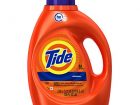 Wired reports today that cell phone industry underdogs Verizon and T-Mobile support a plan that would allow cell phone customers to switch carriers without giving up their phone numbers. Bravo.
Wired reports today that cell phone industry underdogs Verizon and T-Mobile support a plan that would allow cell phone customers to switch carriers without giving up their phone numbers. Bravo.
[…] The FCC has mandated that the cell-phone industry let its customers switch carriers without having to give up their phone numbers by Nov. 24. But the industry has vehemently opposed the policy, saying it could cost carriers up to $500 million a year to implement […]
I currently am a Verizon customer. But I'm not tied to Verizon. I think there are better providers with more cost effective plans and better service – for my needs. But I've been hanging with Verizon for three years or more because I don't want to give up my phone number. And why should I? But fact is if you switch carriers today, you lose your number. It's a “got 'em by the balls” situation. And frankly, I hope the grip is loosened.
“While the national wireless carriers have uniformly stated their general opposition to WNP (wireless local number portability), we think it is interesting that Verizon Wireless and T-Mobile USA are among the first to potentially break ranks,” the analysts said. “In our view, this makes sense.”
To counter a potential stampede of customer defections, AT&T is lobbying the FCC to extend number portability to traditional home and business land-line customers to keep their numbers but switching to a cell phone instead. It looks like we could be getting closer to realizing the promise of a single phone number or other alternative of a follow-me (where the one phone number always finds you — regardless of where you are) type of telecommunication service.
Should phone numbers be like domains? Once reserved, you can use the phone number with any provider you choose. Makes sense. But who really “owns” the phone numbers. Certainly the telecommunications giants have made large investments in infrastructure which enables the routing of telephone calls from land, air, sea and virtually everywhere else. I remember in 1995 or 1996 during the infancy of telecom deregulation (local and long distance services) I switched my company to MFS (ultimately acquired by WorldCom). Making this switch would save our company thousands of dollars. But there would be a cost. I would have to change our phone number. In analyzing the numbers I realized that the cost to switch numbers would ultimately cost more in customer confusion and potentially lost business, I passed on the switch. At that point MFS indicated that we could “rent” the phone number (the primary number, we had 7 or 8 rollover lines) from Pacific Bell (my carrier at the time) and like an alias on my computer all calls to the Pac Bell number would get “forwarded” transparently to the new MFS number. I bought it. The rental fee was less than $5 a month or so. But as telecom services emerged, this aliasing/forwarding would have side effects not considered at the time: caller ID. Making calls from the primary line would confuse the caller ID services of our vendors, customers and our employees. The “real” MFS number was transparent. Until caller ID. And when callers would confirm our phone number on the digital readout, our employees were confused. Where did THAT number come from. Crazy stuff. Frankly, we should have been able to keep our original phone number and saved time and effort for SBC, MFS and our team.
Technology and infrastructure changes (ie. wi-fi) make it hard for the FCC to keep up. As a result, a bevy of regulation and deregulation agendas either speed through without critical assessment of what's right for customers or even worse, stall due to the collective lobbying efforts of industry and special interest groups. But for me, my concern is now. Let me keep my phone number. And help me from an endless update of phone numbers from friends and associates who fill my email with changes making my address book updates a full time task.



